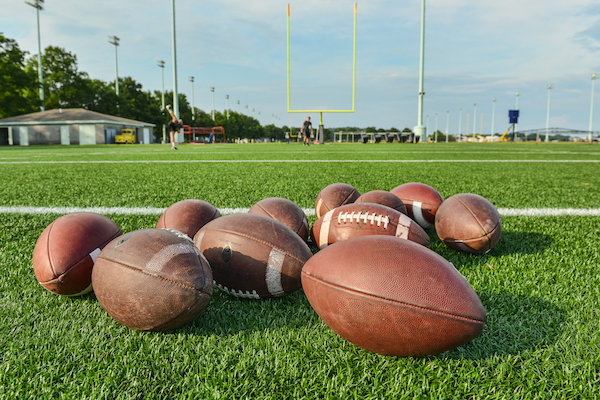
An appeals court should dismiss a Christian school’s specious assertion that it be allowed to broadcast prayers over the PA system at state championships, the Freedom From Religion Foundation is contending in an amicus brief.
Cambridge Christian School, in a case before the 11th U.S. Circuit Court of Appeals, is seeking to force the Florida High School Athletic Association to broadcast prayers over the public-address system at state championship competitions hosted by the association. Cambridge Christian’s free speech claim fails because it has not established that a forum exists for private speech at these government-sponsored events, FFRF points out.
“Cambridge Christian is not requesting equal access in this case; it is requesting special treatment,” FFRF contends.
“A private religious school does not have a constitutional right to commandeer the PA system at a state-sponsored athletic competition,” FFRF’s friend-of-the-court brief asserts. “The Free Speech Clause of the First Amendment only protects private speech, it does not implicate government speech.”
And the PA system has indeed been used exclusively to communicate government speech. Cambridge Christian cannot point to a written policy for third party use of the PA system at Florida High School Athletic Association-sponsored state championship games. Nor can it identify a consistent history of other speakers using the PA system at the same time or for the same type of speech.
“Cambridge Christian wants to force a state agency to allow the school to promote its Christian message through a mechanism limited to conveying government speech,” states the brief. “Florida High School Athletic Association has rightly declined to do so, not only because it would violate the Establishment Clause of the First Amendment, but more generally because the government simply has not created a forum for private speech at all.”
The Florida High School Athletic Association has always used its PA system to promote its own speech, explains the brief. Additionally, the association appears to endorse all of the pregame messages communicated over the PA system and the association maintains control over the PA system throughout the pregame period. These three factors demonstrate that the government has not created a forum for private speech over its PA system.
As a government entity, the Florida High School Athletic Association cannot broadcast prayers to a stadium full of students. If it is forced to do so, it will violate the constitutional rights of thousands of families.
“Requiring the Florida High School Athletic Association to broadcast prayers would raise a host of issues, including entangling the FHSAA in religious judgments, such as whether a proposed Christian prayer is sufficient to cover the religious views of both participating schools, or whether it must entertain requests for two competing prayers,” says the brief.
“The Florida High School Athletic Association has an obligation to ensure that the First Amendment rights of students — and the rights of parents to dictate the religious or nonreligious upbringing of their children — are protected from state-sponsored religious messages,” the brief adds. “Thus, the FHSAA cannot allow public prayer broadcasts at any State championship events. This well-established constitutional principle also refutes Cambridge Christian’s laughable argument that it has a free exercise right to broadcast prayers indiscriminately to the entire audience at a state-sponsored event.”
Messages over the Florida High School Athletic Association-controlled public address system constitute government speech, FFRF concludes. As a government entity, the FHSAA cannot broadcast prayer in violation of the Establishment Clause, but more fundamentally, Cambridge Christian does not have a constitutional right to take over a PA system that is used for government speech and to use it for its own religious purposes. The school is not seeking equal treatment in this case, FFRF emphasizes — it’s suing to gain a special privilege not available to any other private actor.
“There are two alternate legal doctrines at play here: the government speech doctrine, which says that when the government speaks it can pick and choose between what messages its wants to convey, and the wholly separate analysis that would apply if the Florida High School Athletic Association had established a forum for private speech over its PA system,” explains FFRF Associate Counsel Sam Grover, who drafted FFRF’S brief. “If the FHSAA had established a forum for private parties to broadcast whatever messages they wish, then Cambridge Christian could at least plausibly claim a right to equal access. But that’s simply not the case here.”
“This is religious privilege run amok,” notes FFRF Legal Director Rebecca Markert, who signed the brief on behalf of FFRF. “Cambridge Christian feels entitled to broadcast their personal religious message to a stadium full of spectators at a government-sponsored event.”
You can read the full brief here.
The Freedom From Religion Foundation, with over 38,000 members and several chapters all over the country, including more than 1,800 members and a chapter in Florida, works as an umbrella for those who are free from religion (freethinkers, atheists, agnostics, and nonbelievers) and who are committed to upholding the Establishment Clause.

